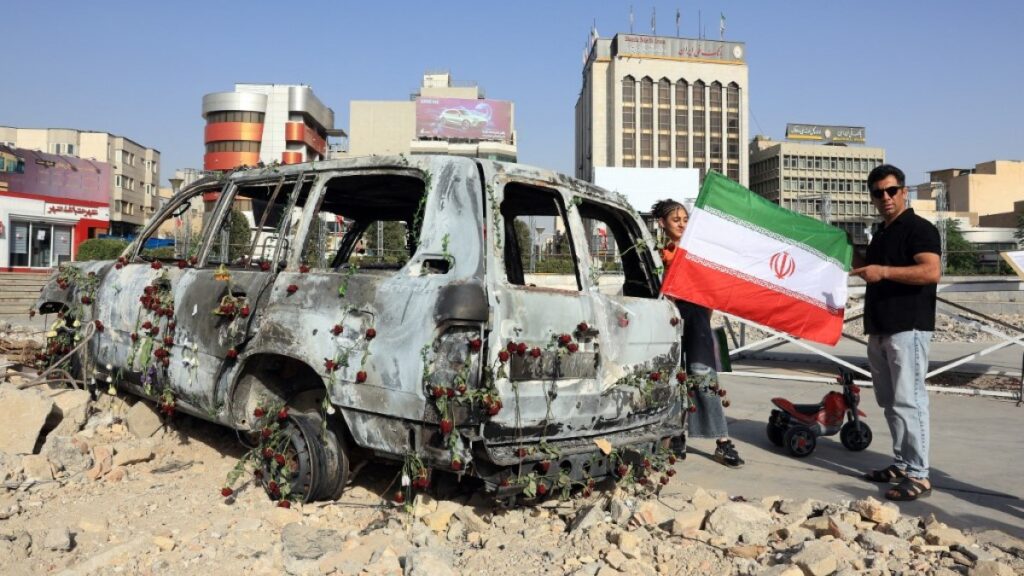Intelligence operations years in the making were behind Israel’s targeting of key military positions and leaders in Iran this month, according to the Israeli press.
The strikes that took out much of Iran’s key defensive infrastructure and killed military commanders are credited to an Israeli intelligence service that is claimed to have infiltrated much of Iran’s security apparatus.

Inside Iran, scores of people have reportedly been arrested and accused of spying for Mossad, Israel’s intelligence agency, providing media support for Israel or disturbing public opinion.
Just a few days ago, the Iranian government ordered senior officials and their security teams not to use smartphones connected to the internet to avoid Israeli hacking of sensitive communications. Iranian security services, meanwhile, are understood to have asked the public to report any building they have rented to companies or individuals in the last couple of years.
Iran’s crackdown follows what has been framed as an unprecedented Israeli intelligence operation that led to its recent strikes on the country, but how extensive has the infiltration been, and how long has it been in the works?
How large a role did Israeli intelligence play in its initial strikes on Iran?
A significant one.
Shortly after Israel’s strikes on Iran, stories of the intelligence operations that preceded the “unprecedented” attack flooded the media. In interviews given by senior members of Israel’s intelligence community, details were given about how both human intelligence and AI were used in tandem to stage the attack, which they claimed hobbled much of Iran’s air defences.
On June 17, just days after the strike, The Associated Press published interviews with 10 Israeli intelligence and military officials with knowledge of the strike.
“This attack is the culmination of years of work by the Mossad to target Iran’s nuclear program,” Sima Shine, the former research director of Mossad, told the AP. The piece also detailed how Israeli agents were able to smuggle in a series of drones and missile systems into Iran, which were then used to strike numerous targets determined by a United States AI model working on data provided to it by Israeli agents within Iran, as well as information gained from previous strikes.
Are the intelligence operations ongoing?
They appear to be.
Israel claimed that the locations of two senior officers in Iran’s Quds force, Saeed Izadi and Behnam Shahryari, who were killed over the weekend, had been determined by its intelligence networks.
Earlier, on June 17, Israel was able to locate and kill one of Iran’s most senior military figures, Major-General Ali Shademani, and that was just four days after the assassination of his predecessor in a targeted air strike.
“I don’t think people realise how much audacity we have,” Israeli military intelligence specialist Miri Eisin told The Observer in the United Kingdom, noting that a target would have to entirely rid themselves of any electronic devices that could connect to the internet to avoid detection. “Most people don’t take themselves off the grid,” she said. “You can get to anybody.”
“Israel likely has around 30 to 40 cells operating inside Iran,” defence analyst Hamze Attar told Al Jazeera from Luxembourg, “with most of those made up of collaborators, rather than Israeli agents, which also makes Iran look weak,” he said, citing the assembly instructions found on the hardware seized by authorities.
“Some of those cells will be responsible for smuggling weapons from Israel, others for carrying out attacks and others for intelligence gathering,” he said.
How long has this been going on?
Israeli intelligence operations inside Iran are nothing new. According to analysts, operations designed to monitor, infiltrate, sabotage and undermine Iranian defences date back to the Iranian revolution of 1979.
Speaking in November 2024, Ali Larijani, a senior adviser to Supreme Leader Ayatollah Ali Khamenei, acknowledged the extent of Israeli operations in Iran, telling the ISNA news agency that the “problem of infiltration had become very serious in recent years”.
“There have been some instances of negligence for years,” the former parliamentary speaker and nuclear negotiator added.
The detonation of communication devices used by the armed Lebanese group Hezbollah in September 2024 was only possible after the infiltration of the group’s supply chain by Israeli intelligence. Likewise, the assassination of its leader, Hassan Nasrallah, was carried out after details of his location were obtained by Israeli agents. Similar subterfuge was also used in the targeted assassination of Hamas’s political chief Ismael Haniyeh in Tehran in July 2024, when an explosive device placed in his residence weeks before was detonated.
In the last two decades, Israel has killed a number of Iran’s nuclear scientists, including Mohsen Fakhrizadeh, who was assassinated by a remote-controlled gun mounted on the back of a pick-up truck. Israel was also responsible for the release of the Stuxnet computer virus in 2010, which was thought to have infected 30,000 computers across at least 14 nuclear facilities in Iran.
Does Iran also spy on Israel?
Absolutely.
In late October, Israel’s internal security agency, Shin Bet, announced the arrest of seven Israeli citizens on suspicion of spying for Iran. A day earlier, authorities had detained another group of seven in Haifa, alleging they had assisted Iran’s Ministry of Intelligence during wartime.
At the time, Israeli police sources indicated that additional covert networks with ties to Iran may be active within the country.
If this is a covert operation, why do we know so much about it?
Because, according to analysts, publicity can also be a powerful tool in an intelligence agency’s toolkit.
Publicising the degree to which an opposing country’s security infrastructure can be infiltrated and sabotaged undermines that country’s morale while scoring points at home.
“It’s psychological warfare,” Attar said. “If I keep saying that I’ve broken into your house and you keep denying it, then I present proof of having done that, how do you look? You look weak. Israel will keep bragging about the extent of their infiltration in the hope that Iran will deny it, then they’ll provide further proof of it.”


